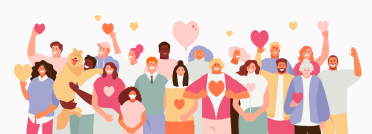We’re often asked to review existing websites and applications to improve their usefulness or increase conversions. We love doing this. Like any brand property, websites need to develop and change as your users, your products and your competitors change - and there are often several areas that can be tuned and developed.
How do we choose where to focus our attention and the client’s limited budgets?
Analytics can tell us which pages are being used or abandoned, but it doesn’t always tell us why. Also, analytics can't really tell us anything about what’s missing and what might work better. Online surveys are an option, but in my experience, you will often encounter "users that like to fill in surveys", and let’s face it, that ain't everybody, so you could be missing a large part of your audience!
With our clients we undertake regular reviews of their websites, to keep them running smoothly and delivering the best bang-for-buck we can. One particular client runs a very well established annual event, and we’re currently planning for this year and next.
As well as site audits, analytics, and social media questioning, it occurred to me that we had a great opportunity to do something a bit different. My plan is to get feedback directly from the horse’s mouth, by meeting hundreds of their users face to face at the event, and staging a "mass focus group".

Focus groups can be a powerful tool in system development, but they should not be the only source of information about user behaviour. In interactive systems development, the proper role of focus groups is not to assess interaction styles or design usability but to discover what users want from the system.
JAKOB NIELSEN
Planning my mass focus group
Initial discussions with the client show this could be a runner, so I started working out exactly what I wanted to achieve:
- Generate some new ideas for the website
- Find what users think about the website structure
- Find out how people interact with the website (environment/devices)
- Learn about the diversity of the website's audience
Like most websites, this one caters to several different user groups, so I will attempt to interview an equal proportion of:
- People who participate in the event
- Press & Media
- People attending the event as an enthusiast
- People there for a day out
As I’m looking for new ideas it is vital to avoid leading questions about specific features I might think the user will want to discuss, as this could skew my findings and be self-fulfilling. Instead, I need to ask the questions that allow the candidate to talk freely.
Some example questions:
- What area of the website is most useful to you?
- What new feature or page would you like to see on the website?
- What part of the website do you use the most?
- What’s not so good?
I will also need to look into ways to encourage the interviewees to talk more about their impressions of the website, by using techniques such as reflective listening and paraphrasing.
Tip - Having the website on an iPad would help interviewees show us what they think.
Developing Personas
Meeting the website’s audience will also give me a wealth of information I can use to develop personas, such as:
- How do they use the website (mobile, tablet, etc.)
- Where & when they use the website?
- Age, gender, professions (anything useful for developing persona profiles)
Therefore asking some general questions would be helpful, and should probably be asked as an icebreaker.
Running the mass focus group
Generally, two people will be enough to run this type of focus group; one to interview; one to record observations.
Filming or recording
If the interviewees are comfortable being filmed, then all the better as short video clips are very powerful when sharing findings with clients, especially senior management.
Incentivise
As I will be asking people to give up some of their time I like to make sure I have a freebie or two to give away. With any luck the event organiser can help me with this.
Stay neutral
It is vital not to influence interviewees. This can happen if interviewers are people who have worked directly on the project - AKA me! Therefore I will select two interviewers from my team who are unfamiliar with the website, with no preconceived ideas.
Tip - The interviewers can help the interviewee feel at ease by stating:
- We did not design or make the website, we are just doing research to make it better
- There is no bad feedback, only good feedback, so don’t hold back
Sharing my findings
This event is in a couple of months so nothing to report as yet! However I know I will need to document the findings as soon as possible after the event, splitting what is recorded between target audiences and similarities in feedback, observing any obvious patterns, and looking for any “Wow!” ideas that come up. This will then be presented back to our client with any supporting video clips and leanings about technologies used to access the website and personas.

